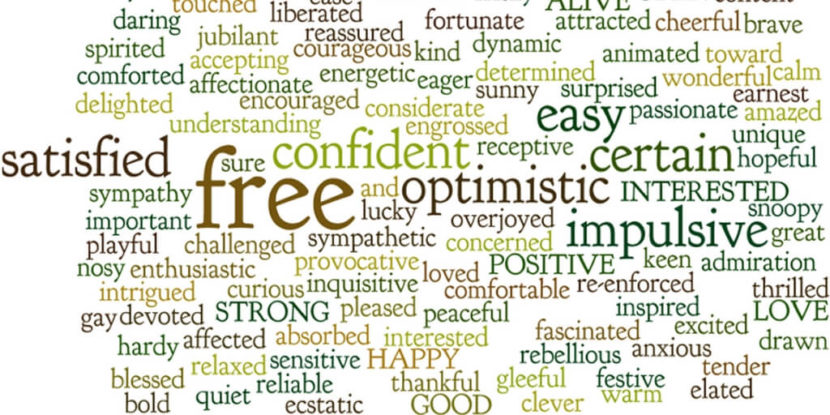When preparing for the GRE, one of the greatest challenges for most aspirants is the verbal section in general and building GRE vocabulary, specifically.
There are many methods that you can use to create a strong English vocabulary that will help you sail through the GRE. Some of the most common ones include using mnemonics, roots, and word lists, although we strongly suggest that you AVOID GRE word lists entirely.
Anyway, once you’ve obtained a vast reservoir of words, you’ll realize that having all of them sorted in your head becomes a nightmare. What you need is a system that helps you clump up these huge amounts of words in a meaningful way.
You’ll need a system that will help you not just organize these words thematically, but also remember the distinct differences in their tones and meanings.
Grouping is meant to address exactly this!
There can be various kinds of grouping. In this article, we will discuss:
Let’s take a look at the prominent styles of grouping to get you going.
1. Grouping by Inclines
An incline essentially clumps up similarly-themed words. An incline signifies the degree of variation in meaning among the words.
Look at these examples.

The first incline begins with ‘timid’, which means ‘shy’. While ‘timid’ has no negative connotation of its own, ‘diffident’ has a similar meaning but it carries a slightly disapproving tone by implying a lack of confidence.
‘Pusillanimous’ means ‘showing a lack of courage or determination’, which is slightly more disapproving than ‘diffident’. The word ‘craven’ has a fairly heavy tone of criticism, it means a contemptible lack of courage or cowardly behavior.
If a person calls you timid, they might actually mean it in a positive sense, implying that you are of a shy and peaceable temperament. But if someone calls you “craven”, there is no doubt that they look down upon you and have a very negative opinion of you.
Take a look at the other inclines as well. Do you see the distinctions in meaning?
When you learn words, make sure you learn them in context. Also, make sure you clump them up based on their common themes.
When this is done, making inclines becomes much less arduous. Sure, making inclines takes time and effort, but the rewards of spending the extra time to figure out the nuances in meaning among the words will definitely pay off on the GRE, especially with those tricky SE and TC questions!
2. Grouping by Context
Another effective way to use grouping is to make groups of words based on the context in which they’re used.
For example, you could group together all the words that are related to the Church.
- Friary

Friars are priests who belong to one out of any of the mendicant orders of the Christian faith. Friars typically wear black robes along with a tassled rope for a belt. They also wear a small black skullcap as a part of their formal uniform. Friaries are church buildings in which friars live.
- Ecclesiastical
The word ‘ecclesiastical’ means ‘of or relating to the church’. The most common usage of the word occurs when referring to the church calendar – it is called the ecclesiastical calendar, or the church calendar.
Some of the Christian festivals occur on fixed dates – for example, Christmas is always on the 25th of December – while others like Good Friday and Easter depend on the positions of celestial bodies including the sun and the moon. The ecclesiastical calendar helps in determining the dates for such festivals.
- Steeple

A church steeple is the tower and spire of a church. These structures typically bear the Christian cross, displayed either on the top or at the base of the spire, as shown in the steeple in the middle. A steeple may be a spire built on top of a tower, as shown in the left-most pictures, or a spire atop the roof of the church, as shown in the other two pictures.
- Oratory
You may have heard this word in the context of public speaking, when a good speaker is called a great ‘orator’. The term ‘orator’ comes from the Church building known as an oratory. An oratory is a small prayer house, especially the kind built for private worship as opposed to large churches and chapels. Addressing a small audience in an oratory involves public speaking, so presumably, that’s where the word ‘oration’ with its public speaking connotations comes from.The word oratory also has another meaning with reference to the Roman Catholic Church. It refers to specific orders of priests who are instituted without having to take the vows average priests do.
- Minster

If you are familiar with writing related to the British Royal Family, you must have heard of the world-famous ‘Westminster Abbey’. In case you thought ‘minster’ was just a part of the abbey’s name, think again!
‘Minster’ is a special title that is conferred upon a handful of churches in England, exclusively. You will not find minsters elsewhere in the world. Before the introduction of parishes and parish churches in the 11th Century, Minsters held significantly higher levels of prestige than they do today.
3. Grouping by Origins
The third way you can use grouping is to cluster words by their origins. The English language has adopted words from various languages, which enables you to create groups of words based on the languages from which they were adopted.
The Greek language has had a huge influence on English. There are a lot of words that took shape from stories belonging to Greek mythology. Here’s a look at some words that were adopted from ancient Greek.
- Procrustean

Procrustes – a smith from Greek Mythology – was infamous. The story goes like this: Procrustes would invite guests home to rest in his bed. If they didn’t fit the bed – he “made” them fit the bed by either stretching them to make them (the travelers) longer or chopping off their legs to make them shorter! Gruesome – we know!
Therefore, when something is Procrustean, different lengths or sizes or properties are fitted to an arbitrary standard.
For Example: “The would-be critic starts out in life with a sort of Procrustean ideal of measurement, to which everything has to be cut down.” – Hollander, Lee Milton.
- Narcissism
Narcissus, another figure from Greek Mythology, was very proud of himself and admired himself excessively. One day while Narcissus was strolling by a pool he noticed his reflection. Seeing his reflection in the pool and realizing how attractive he was – he fell in love with himself. He was so transfixed by his own beauty that he grew old and died at the pool, gazing at his own image. When someone is a Narcissist or someone exhibits the quality of Narcissism- he or she has an excessively grandiose view of oneself; they also admire themselves (physical or otherwise) excessively. Don’t confuse this with the feeling of self-worth or love. Narcissists don’t just like themselves, they love themselves above everything else: they are obsessed with themselves.

For Example: “Lily remains a dedicated narcissist, addicted to face-lifts and a number of self-gratifying social causes.” - Herculean

Hercules was a Greek Hero and the son of Zeus. He was famed for his superhuman strength and ability to achieve feats that were almost impossible. Hercules is well known for his adventures – the most well known are the “12 Labours” which required Hercules to accomplish 12 almost impossible tasks.
The word ‘herculean’ means exactly this; it suggests that something requires a great amount of strength and effort to accomplish. For Example: “Any effort to remove the non-native rainbow and brown trout in these areas would be nearly impossible – Herculean, expensive, and unpopular,” Kumlein said. - Bacchanal
Bacchus was the god of the grape harvest, winemaking, and wine, and of ritual madness and ecstasy in Greek mythology. He was associated with unrestrained celebrations and revelries. Therefore, when a celebration (a party) goes wild with different kinds of promiscuities it’s a bacchanal. For Example: “Based on Belfort’s memoir about his evolution from penny-stock peddler to millionaire trader, Scorsese’s adaptation is a capitalist critique in the form of a bacchanal.”- About the movie “The Wolf of Wall Street”

- Mercurial
The god ‘Mercury’, also called Hermes, was a messenger god. The planet Mercury was named after him. What’s peculiar about Mercury is that the temperatures in this planet undergo extreme changes very frequently: it reaches about -200°C during the night and goes up above 400°C during the day!

When someone is subject to sudden or unpredictable changes of mood or mind – he/she is Mercurial. For Example: “Mr. Sadr, 40, a somewhat mercurial figure, has made such announcements before and then has changed his mind.” - Plutocracy

Pluto, also called Hades, was the god of the underworld. There were two popular attributes to the underworld:- Place where bad people went after they died.
- Place where all the precious stones could be found.
Therefore Pluto, as a god, was the god of hell as well as the god of riches. As a result, the root pluto- could be used to mean either “hell-like” or “wealth”. In the case of the word ‘plutocracy’, the root uses the latter meaning.
Plutocracy is, therefore, a political scenario in which the rich and powerful have control over the masses.
For Example: “A progressive tax system should maintain or reduce income inequality so that our society is more of a meritocracy than a plutocracy.”
All in all, you can see how grouping can have a massive impact on the way you organize what you learn. In our post about mnemonics, we talked about how the mind works like a map and every new word you learn is a destination on that map.
Grouping helps ensure, just like roots and mnemonics, that you have multiple ways to get to the new destinations (words) you learn.
We hope you found this article useful. Let us know what you think in the comments below!

